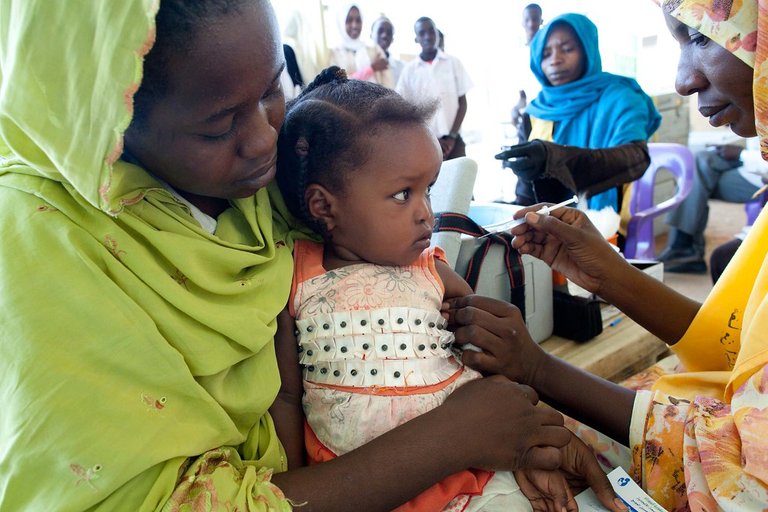Rotavirus still exists despite vaccination.
Rotavirus infections are very stubborn infections that still cause a high case of death despite vaccination, it still causes around 200,000 on a yearly basis, mostly affecting low-income nations. It is the most common cause of acute gastroenteritis in the world, although, with the introduction of the vaccine, the effect was reduced, notwithstanding, it is still very common, especially in children who are below 5 years of age.
Rotavirus was discovered from duodenal biopsies and fecal samples taken from humans who have acute diarrhea, this happened in the year 1973. Developed countries that go through routine vaccination programs have a lower case of rotavirus compared with non-developed or developing countries. Symptoms of Rotavirus include; vomiting, severe diarrhea, fever, vomiting, fever and rare neurological features like encephalitis, convulsions, or encephalopathy. The most common symptoms are vomiting and diarrhea, creating serious dehydration, and limited oral intake, this would lead to a case of hospitalization and possibly death if not treated on time.

flickr.com
(Look at this baby's face, I wonder what's going through her mind)
Rotavirus in itself is a double-stranded RNA virus that has been named after its shape "wheel-shaped" when checked with a microscope. Rotavirus is often transmitted through a fecal-oral route. The viral spread can be ignited through fomites, contaminated hands, and in rare cases, food and water. Rotaviruses replicate in mature enterocytes all through the small intestinal lumen. This alteration that affects the epithelial cells of the small intestine results in an osmotically active food bolus being moved into the large intestine, this would create the reabsorption of water into the large intestine. It is the impaired reabsorption of water that would, in turn, create a case of typical watery diarrhea observed in rotavirus. Another possible reason why we could have a case of rotavirus-induced diarrhea includes increased intestinal motility, although the cause of this happening is not so clear.
The incubation period of Rotavirus is usually from 1-3 days, and after this, the symptoms will abruptly appear with varying presentations. The symptoms that we described above, we will notice are identical to gastrointestinal infections but that of rotavirus are often more severe. The symptoms are more serious in patients whose first infection happens after 3 months of age. Infants who have mild symptoms have a lower chance of getting a severe infection.
In some cases, lab testing is not necessary before you can tell that this is Rotavirus. However, laboratory testing remains the only method to confirm the diagnosis of rotavirus. In serious intractable cases of infection, a confirmatory laboratory test will be an indication to solidify the diagnosis of rotavirus. The use of electron microscopy, polyacrylamide gel electrophoresis, and antigen detection assays are options made available through laboratory testing to ascertain the presence of the virus.
The treatment of rotavirus infection is aimed at relieving the symptoms, treatment, and prevention of associated dehydration. As a first-hand treatment, oral rehydration salt should be attempted, in adults loperamide, codeine, and diphenoxylate could be added to help relieve the symptoms and to help control the volume of diarrhea. Bismuth salicylate has proven to be beneficial in terms of treatment, but it should only be considered after other infectious agents have been ruled out. If the symptoms remain stubborn to oral therapies, and the patient gets dehydrated, then instant admission to the hospital and administration of Intravenous fluids may be required.
Rotavirus is a serious, highly infecting disease that could affect every child who is between 3-5 years of age. As of 2003, 114 million cases of rotavirus infection were reported in children under five years of age, and out of these infection cases, 24 million required outpatient visits, and 2.3 million cases required hospitalization. As of 2013, rotavirus became associated with an estimated more than 200,000 facilities in children who are lower than 5 years of age.
rawpixel.com
A significant reduction in the impact of rotavirus disease has been closely observed after the introduction of the rotavirus vaccine. Some indirect form of protection has also been sorted for children who are ineligible in age. The change in the seasonal pattern of rotavirus disease has also been observed after the introduction of the vaccine, there was a creation of a shorter season in terms of duration and the blunting of seasonal peaks.
The complication of children with Rotavirus who do not get urgent treatment could lead to death. There was an approximate figure of around 500,000 cases of death in children, severe dehydration is often responsible for the death cases in rotavirus infections. Other cases of complications like neuro. logical sequelae would get resolved with the treatment of rotavirus infection.
All the current vaccines for the treatment of rotavirus are live saves, but not without risk. However, we cannot deny how helpful and how much of a lifesaver they have been over the years as the benefits definitely overshadow the risk, this vaccination should be administered to children in two doses, within less than 60 days of birth.
References.
https://www.ncbi.nlm.nih.gov/pmc/articles/PMC5858916/
https://www.statpearls.com/ArticleLibrary/viewarticle/28656
https://jbiomedsci.biomedcentral.com/articles/10.1186/s12929-020-00649-8
It needs to be dealt with quickly because this look like an outbreak in disguise
Thanks for your contribution to the STEMsocial community. Feel free to join us on discord to get to know the rest of us!
Please consider delegating to the @stemsocial account (85% of the curation rewards are returned).
Thanks for including @stemsocial as a beneficiary, which gives you stronger support.
It is still being managed with vaccination, the issue is however with underdeveloped countries who need to get more aware of what to do.